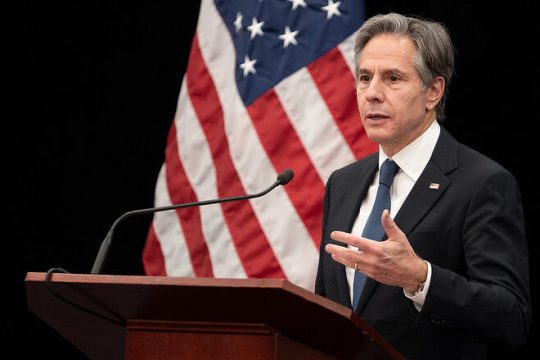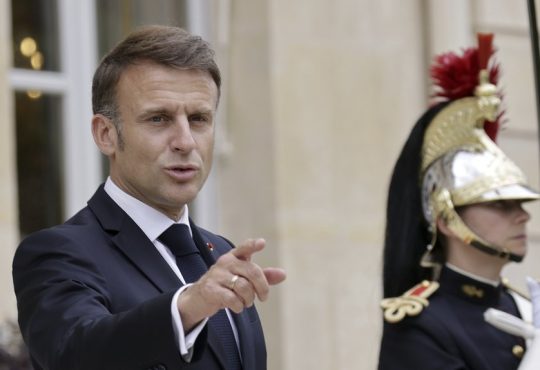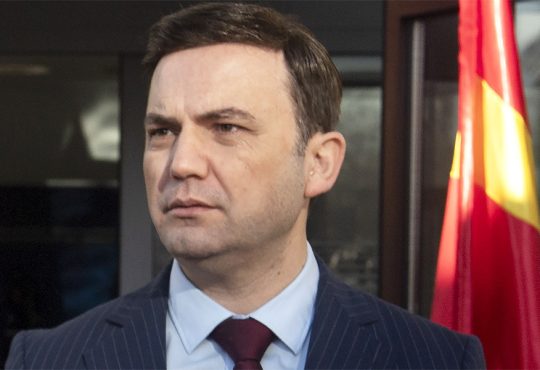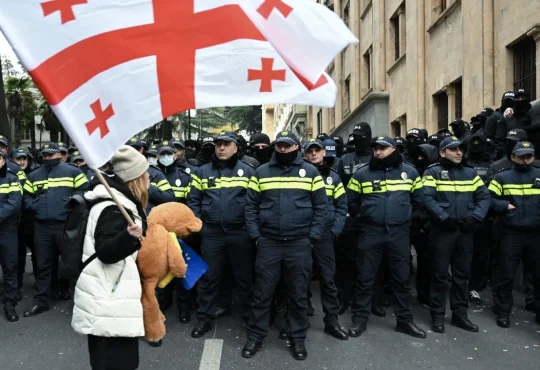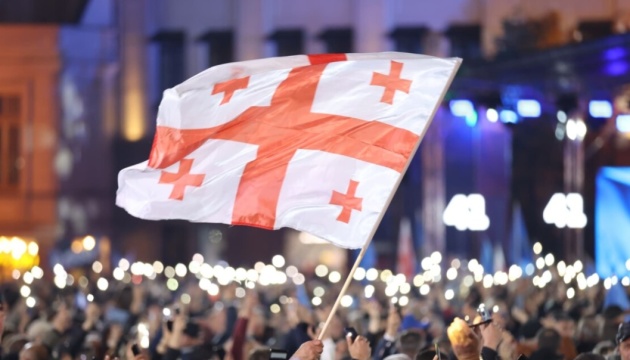
GEORGIA DEMANDS RE-ELECTIONS
This is exactly what the situation in the country looks like a week after the 'stolen elections.' There is no longer any doubt that they were indeed stolen – courts have begun canceling the election results at individual polling stations in batches. The first reports of systematic falsifications using electronic ballot counting devices have already emerged. And if at first the opposition demanded a recount of votes at specific polling stations, now the information about the scale of abuses sends a clear signal: the elections will have to be held again.
In reality, the attack on the elections in Georgia came from two sides. On one side, Russian forces conducted a months-long propaganda campaign aimed at intimidating the citizens of Georgia. They were presented with a false choice – 'either you vote for Moscow’s puppets, or there will be another war, bigger than the previous ones, like in Ukraine.' Naturally, this affected the mood of many, but it did not break the Georgian people. They were ready to vote for the European path and freedom from the Russian regime, no matter what. But on the other side, the pro-Moscow ruling party decided to secure their position – and falsified the elections.
As Mikheil Saakashvili said on his Facebook page, the country is on the brink of destruction, so it is either-or: “We all need to realize that in Georgia, not only were the elections stolen, but a dictatorship was established, which now waits for Georgians to enter the ‘new reality,’ and then plans to finally suppress the remnants of freedom and conduct mass repressions. A large-scale ethnic cleansing of Georgia is also being prepared.”

How they stole the votes
So, if the voting had taken place without direct falsifications, the results would have been close to the figures shown by the exit polls, which indicate that "Georgian Dream" would have received no more than 42% of the votes.and therefore the opposition would have led with a result of no less than 56%. However, the official—read: falsified—results showed diametrically opposite figures: 53.9% for the pro-Moscow ruling party “Georgian Dream,” while the group of opposition parties was collectively given less than 40% of the votes. Specifically, “Coalition for Change” received only 11.04% according to the official, i.e., falsified data, “Unity – National Movement” received 10.17%, “Strong Georgia” 8.8%, and “Gakharia for Georgia” 7.8%.
International observers issued strong statements about the presence of violations following their observations. They recorded cynical actions such as voter intimidation and the use of administrative resources. The European Commission stated that the elections were conducted with violations of voting secrecy and a number of procedures.
The opposition immediately responded and began the fight to save democracy in the country. The President of Georgia, Salome Zourabichvili, called the events during the parliamentary elections a new form of hybrid warfare by Russia, tested on the Georgian people, the day after the vote. Of course, she did not recognize the official voting results, calling them falsified. On October 28, large-scale protests took place in Tbilisi. Zourabichvili spoke at the main rally that day. It was then that the opposition first demanded that the elections be held again. Four opposition parties, which, despite the falsifications, managed to pass the five-percent threshold, collectively did not recognize the legitimacy of the new parliament.

Now – to victory
The only peaceful way to turn the situation around is total re-elections under the close supervision of the international community to prevent Russian influence on the will of the Georgian people.
On November 4, demonstrations and rallies had already begun in Tbilisi. Protesters against election fraud marched through the city. The rally concluded at Marjanishvili Square after participants, including Swedish activist Greta Thunberg, gathered near the House of Justice and walked about 5 kilometers through the streets of Tbilisi, waving Georgian flags as well as those of the European Union and Ukraine.
“I am here to support the fight for democracy and freedom of the Georgian people, who time and again stand against the repression they face from the state,” said Greta Thunberg.Her presence sent a strong signal not so much to the outside world, as the EU and other democratic countries already clearly understand that the elections in Georgia were indeed stolen by Moscow due to powerful hybrid interference. Thunberg’s presence also sent a clear signal to the pro-Moscow ruling party that using force against the opposition is unacceptable.

“This is the most important day. We demand new elections and will not accept the election theft by 'Georgian Dream,' which has already been confirmed,” said Giorgi Vashadze one of the leaders of the opposition coalition ‘Unity-National Movement,’ to journalists on the eve of the rally.

Why such confidence? It’s not just because there were numerous reports from observers about blatant violations. Within the week since the voting day, some of these violations have already been reviewed in courts. Specifically, the court in Tetritskaro (60 km southwest of Tbilisi) invalidated the results at 30 polling stations in Tetritskaro and Tsalka—these stations had used electronic vote counting.
The voting procedure at these locations was organized in a way that allowed outsiders to see which party a voter supported. This means that it was not just about falsifying the vote count itself but also direct voter intimidation due to the breach of voting secrecy.
Of course, the Central Election Commission, which is controlled by the ruling party, will challenge these decisions, but the ice has been broken—it’s now impossible to pretend that the voting violations were isolated incidents, i.e., not systemic. On the contrary, the court has already established that the violations were widespread and systemic.
Now, an intriguing figure: 3,111 polling stations were in operation in Georgia on voting day, of which 2,263 were equipped with electronic voting systems. After the court decisions invalidating the results at such stations, the opposition and local human rights organizations are now fully justified in demanding the annulment of the results at 2,263 out of 3,111 polling stations. This effectively means new elections.
The opposition is gearing up for active resistance, as evidenced by Mikheil Saakashvili's calls,posted on Facebook: “We have little time. Of course, we need patience, but more than patience, we need aggressive resistance against the already de facto established dictatorship. We must fight as long as we can, and then as long as necessary!”
Ukrainian flags at the rallies in Georgia are no coincidence—people here are well aware of the Ukrainian experience in 2004 when they peacefully defended their choice and pressured the authorities into holding new elections.
Tamaz Somkhishvili, a philanthropist and prominent representative of the Georgian diaspora in the UK, believes that the Georgian people deserve broad support from democratic countries in their fight against Moscow’s hybrid interference in Georgia’s elections. The clock is ticking towards the restoration of the Russian empire, and the free world must mount an effective resistance to the resurgence of authoritarianism.

The West must support Georgia in its resistance to pro-Russian forces not just in words, but with tangible pressure on the authorities, as it did during the Maidan in Ukraine in 2004. Back then, the Ukrainian people, with the backing of the democratic world, managed to replace Russia’s protégé Yanukovych and firmly set themselves on the path to democracy. Georgia also deserves such a chance.

